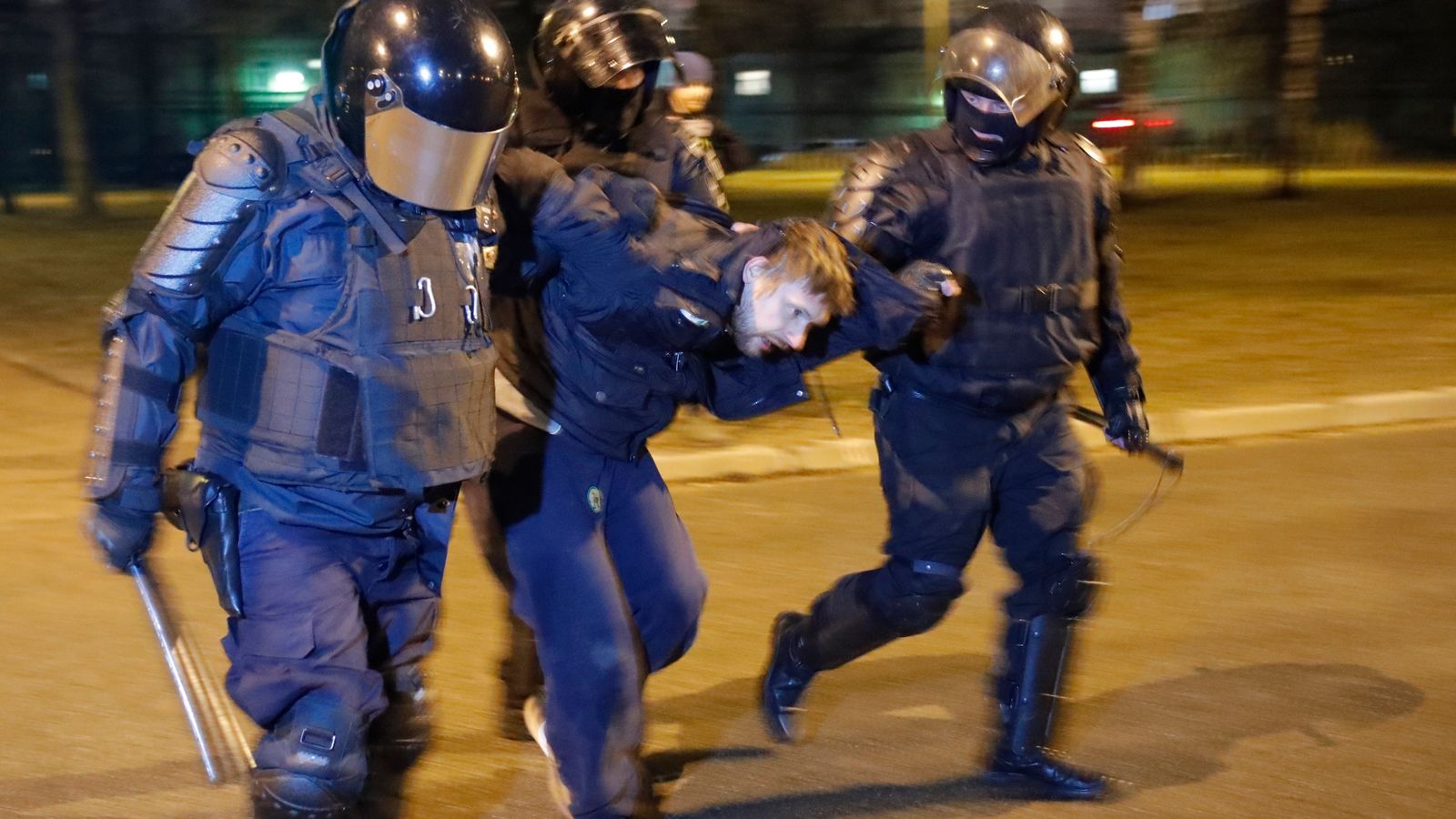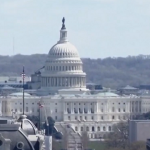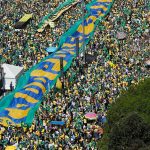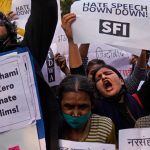First they came for Alexei Navalny… then they came for those who dared to demonstrate in his support.
Some 13,000 have been arrested since January; though most were released after a few days in detention.
Now, the process begins to label Mr Navalny’s anti-corruption foundation, the FBK, an extremist organisation.
That will give prosecutors the chance to hand down lengthy jail terms to its staff and its supporters for organising and financing extremist activities.
The FBK is crowd-funded. Even donating in future could result in an eight-year jail term.
“I think this is a move aimed at the final extermination of the organisation – if you like the ‘final solution’ to the Navalny question,” says Russia analyst Maria Lipman.
“Destroy his organisation completely, destroy all the people who supported him, who worked for him, who sympathised strongly, and then let him rot in prison for as long as the government pleases.”
The extremist designation would place the anti-corruption foundation in the same category as al Qaeda and, bizarrely, Jehovah’s Witnesses who have undergone cruel persecution in recent years at the hands of the Russian state.
“We should not think that everything is in vain and our efforts won’t have positive results,” said lawyer Ivan Pavlov from FBK’s legal team. “We are sure the organisations we represent did not violate any Russian laws.”
That’s as may be but precedent would suggest Russian justice will show Mr Navalny’s organisation as little leniency as it did Mr Navalny himself.
Most of his close aides have fled the country.
Their broadcasting operation is up and running abroad but they have not named where for security reasons.
Those staff who remain are acutely vulnerable.
Part of the organisation’s strength, besides its blockbuster anti-corruption investigations, was its network of offices across 37 Russian regions.
They too were involved in exposing corruption – a network of mini-Navalnys stretching across Russia.
Please use Chrome browser for a more accessible video player
They were key in organising nationwide protests. They also campaigned to support the smart-voting initiative Mr Navalny launched in 2018, a tactical voting strategy to try and unite opposition votes behind the one candidate most likely to beat United Russia, the ruling party, in the polls.
There are parliamentary elections this September.
Smart-voting was Mr Navalny’s plan for bringing a more robust opposition into the parliament.
Some believe that was why the Kremlin decided that the policy of relative tolerance towards President Putin’s most vehement critic needed to change.
This Monday, the prosecutor ordered every regional headquarters’ activities to cease operations immediately.
The head of the FBK’s network of regional headquarters was detained.
In Kazan, an FBK employee was also taken in by police.
But the crackdown on Mr Navalny’s regional teams has been going on for weeks.
The regional co-ordinator in Rostov said police last week tried to shove a truncheon down her throat. Every time she refused to swallow they cut her arm. The criss-cross of cuts is a disturbing image.
There is dramatic video of 24-year-old Aleksey Schwarz, regional co-ordinator in Kurgan, being bundled into the back of a car by plain clothes police officers.
It is not the first time he’s been arrested. We’d spoken to him weeks earlier about a leaked audio recording he published which exposed the audacious fudging of numbers demanded by regional officials around last year’s constitutional vote.
“If we don’t reach our set goal, the reaction will be very, very sad,” a district official is heard saying, in the recording.
“It will be very sad for the governor, very sad for me and for the heads of the regions who didn’t show the result.”
He demanded the numbers be nudged upwards.
This is the kind of systematic electoral malfeasance that smart-voting is up against.
But Mr Schwarz told us then that he was determined not to give up, whatever the authorities did.
“I love the Urals, the Kurgan region and I am fighting for it,” Mr Schwarz said.
“I am fighting even for the sake of kids of those security officers who complained about rising petrol prices even when they had me handcuffed in their car.
“I am fighting for a better future for their children, and for me and my children.
“Of course, I am scared. But I can’t escape it.”






















